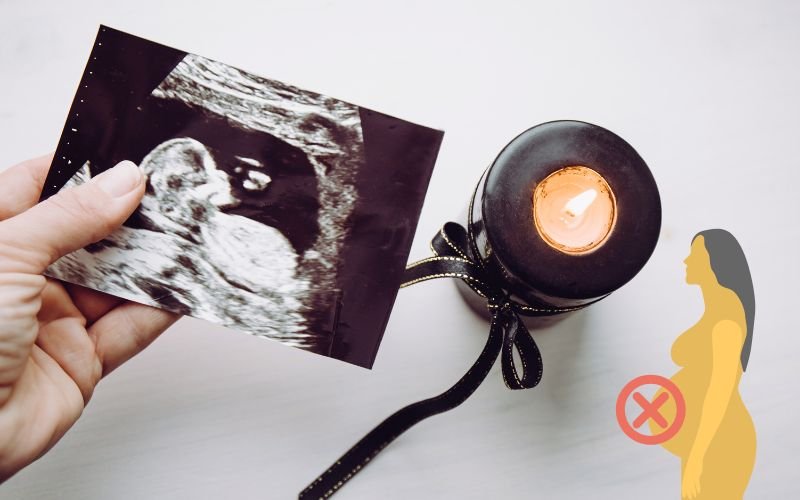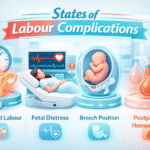Miscarriage is a deeply personal and often heartbreaking experience for females. Defined as the loss of a pregnancy before the 20th week, it is more common than many realize, affecting about 10–20% of known pregnancies. Yet, the emotional and physical toll of miscarriage becomes overwhelming. Understanding what is miscarriage, its symptoms, causes, and distinctions like miscarriage vs blood clots, allow women to detect warning signs early and seek treatment.
This article by obstetrician in Delhi explores miscarriage in detail, covering its symptoms, possible causes, and when to seek help. It also offers insights into foods and habits to avoid, creating awareness around how to support a healthy pregnancy.
What is a Miscarriage?
Miscarriage, medically referred to as spontaneous abortion, occurs when a pregnancy ends on its own within the first 20 weeks. The majority of miscarriages happen within the first trimester, often due to chromosomal abnormalities. This natural loss of pregnancy is rarely anyone’s fault, yet it can leave a lasting emotional impact.
Miscarriage Symptoms to Watch For
Recognizing miscarriage symptoms early is crucial for seeking timely medical attention. Some symptoms include:
1. Vaginal Bleeding
This is one of the most common miscarriage signs. It can range from light spotting to heavy bleeding. Many women confuse the blood of miscarriage with their regular period. If you experience persistent bleeding, consult a miscarriage doctor near me.
2. Cramping and Abdominal Pain
Severe cramping, particularly in the lower abdomen or back, may indicate the complication in pregnancy. The intensity varies, but sharp or consistent pain should not be ignored.
3. Tissue or Fluid Passing from the Vagina
Passing tissue or large blood clots can suggest a miscarriage. If this happens, save the expelled tissue and consult your doctor for further analysis.
4. Loss of Pregnancy Symptoms
A sudden decrease in pregnancy symptoms like nausea, breast tenderness, or fatigue could indicate a problem. While some fluctuation in symptoms is normal, a drastic change warrants medical attention.
5. Lower Back Pain
Persistent, dull, or sharp back pain may accompany a miscarriage. Combined with other symptoms, it is often a warning sign.
If you notice any of these signs, reach out to a healthcare professional immediately for guidance and evaluation.
Miscarriage vs Blood Clots: How to Differentiate?
Distinguishing between miscarriage vs blood clots can be challenging. A miscarriage often involves passing tissue along with blood clots, while menstrual blood clots lack tissue. Miscarriage clots may also appear darker and have a distinct texture. Symptoms like severe cramping, heavy bleeding, and the passing of tissue strongly indicate miscarriage rather than regular menstruation.
Common Causes of Miscarriage
Understanding the causes of miscarriage can help in prevention and better emotional coping. While not all causes are avoidable, knowing the factors can create awareness.
1. Chromosomal Abnormalities
Over half of first-trimester miscarriages occur due to chromosomal issues. These abnormalities prevent the embryo from developing properly and often occur randomly during cell division.
2. Uterine or Cervical Issues
Structural abnormalities, such as uterine fibroids or a weakened cervix, can increase the risk of miscarriage. These issues might prevent the embryo from implanting or staying securely attached.
3. Hormonal Imbalances
Low levels of progesterone, a hormone critical for maintaining pregnancy, can lead to early miscarriage. Hormonal therapy may be recommended for those at risk.
4. Infections
Certain infections, including sexually transmitted diseases (STDs) or untreated urinary tract infections (UTIs), can lead to complications and increase the chances of pregnancy loss.
5. Lifestyle Factors
Smoking, alcohol consumption, and excessive caffeine intake can increase miscarriage risk. These habits affect blood flow and the overall health of the pregnancy.
Which Food Can Cause Miscarriage?
Nutrition plays a vital role in pregnancy, and certain foods may increase the risk of miscarriage.
1. Undercooked or Raw Foods
Foods like raw eggs, sushi, or undercooked meats can harbor harmful bacteria like salmonella, increasing the risk of infection.
2. Unpasteurized Dairy Products
Unpasteurized milk or cheese can carry Listeria, a bacterium linked to miscarriage. Pregnant women should opt for pasteurized options.
3. High-Mercury Fish
Fish like swordfish, king mackerel, and tuna have high mercury levels that can harm the developing fetus.
4. Excessive Caffeine
Consuming over 200 mg of caffeine daily (about one 12-ounce coffee) may increase the likelihood of miscarriage.
Pregnant individuals should maintain a balanced diet and avoid risky foods to support a healthy pregnancy.
When to visit a a gynae doctor?
It’s vital to seek immediate medical attention if you experience any concerning symptoms. A miscarriage doctor near me can offer expert evaluation and guidance. Doctors may recommend tests such as:
- Ultrasound: To confirm fetal heartbeat and development.
- Blood Tests: To check hormone levels and identify possible infections.
- Pelvic Exams: To assess cervical health and look for signs of miscarriage.
Emotional and Physical Recovery After a Miscarriage
Recovering from a miscarriage involves addressing both physical and emotional health.
Physical Recovery
- Rest and Care: Allow your body time to heal. Avoid strenuous activities for a few weeks.
- Follow-Up Visits: Regularly visit your doctor to monitor recovery.
- Healthy Diet: Incorporate iron-rich foods to recover from blood loss.
Emotional Recovery
Miscarriage is emotionally taxing, and grief is natural. Reach out to support groups, counselors, or loved ones to share your feelings. Healing takes time, and every individual copes with this situation differently.
Preventing Miscarriage: Proactive Steps
While not all miscarriages are preventable, adopting a healthy lifestyle can reduce the risks.
1. Maintain a Balanced Diet
Focus on nutrient-rich foods, including fruits, vegetables, and lean proteins, to support overall pregnancy health.
2. Avoid Harmful Substances
Eliminate smoking, alcohol, and drugs from your routine before and during pregnancy.
3. Stay Active
Engage in moderate exercise, such as walking or prenatal yoga, to maintain overall health.
4. Regular Prenatal Care
Frequent check-ups with your healthcare provider can identify and address potential complications early.
Blood of Miscarriage: What You Should Know
The blood of miscarriage often appears darker and heavier than a regular period. It may include clots and tissue. If you experience heavy bleeding with severe pain, consult a healthcare provider immediately to ensure proper diagnosis and care.
Miscarriage, while a painful experience, is not uncommon and is rarely caused by anything under your control. Recognizing miscarriage symptoms early, understanding the differences between miscarriage vs blood clots, and seeking medical care promptly are essential for managing this condition. By maintaining a healthy lifestyle and avoiding risky behaviors, you can reduce the chances of miscarriage and support a healthier pregnancy.
If you or a loved one are seeking guidance, connect with Dr Rachna, a trusted specialist dedicated to providing compassionate and expert care for all your pregnancy-related concerns.




